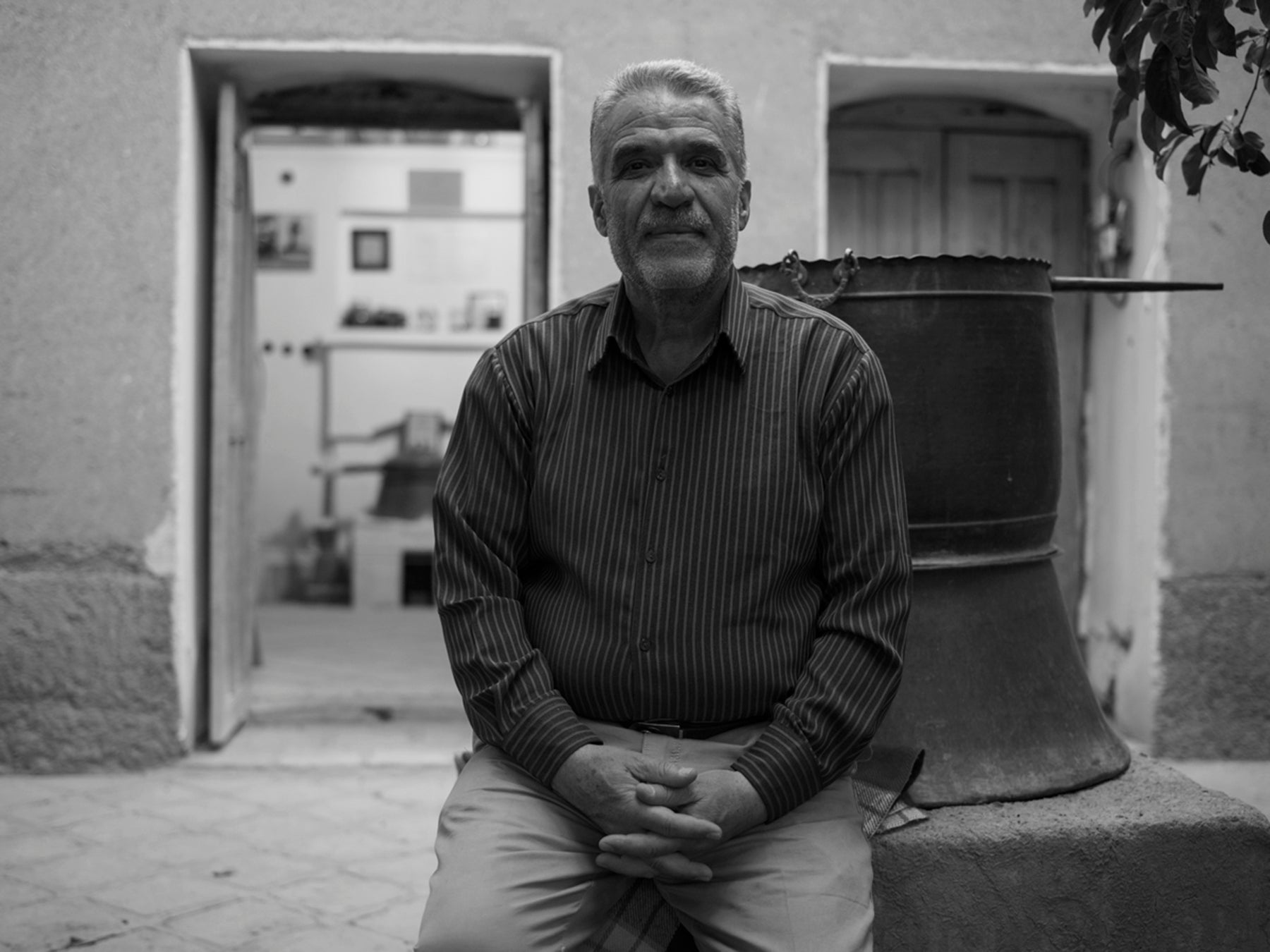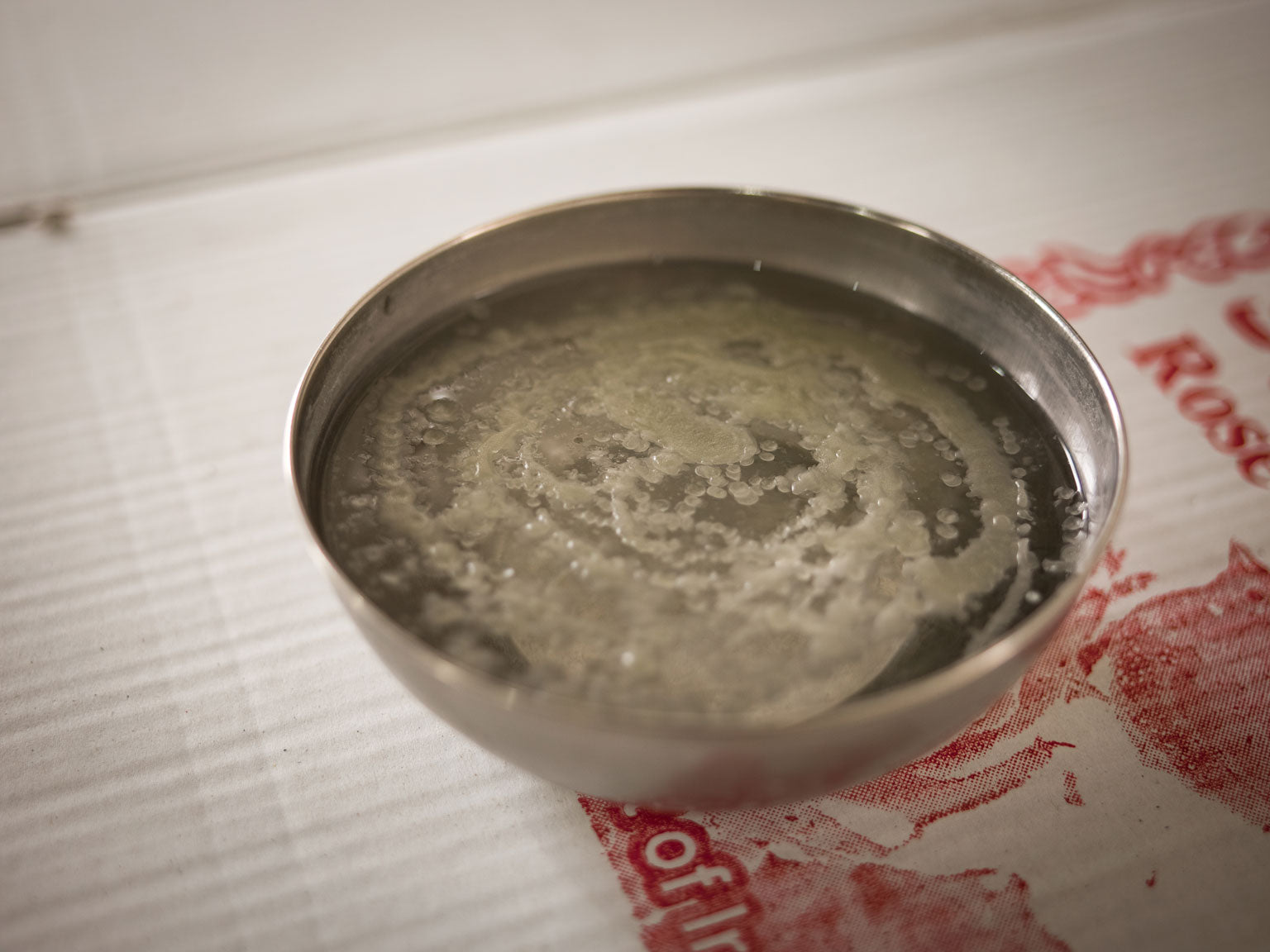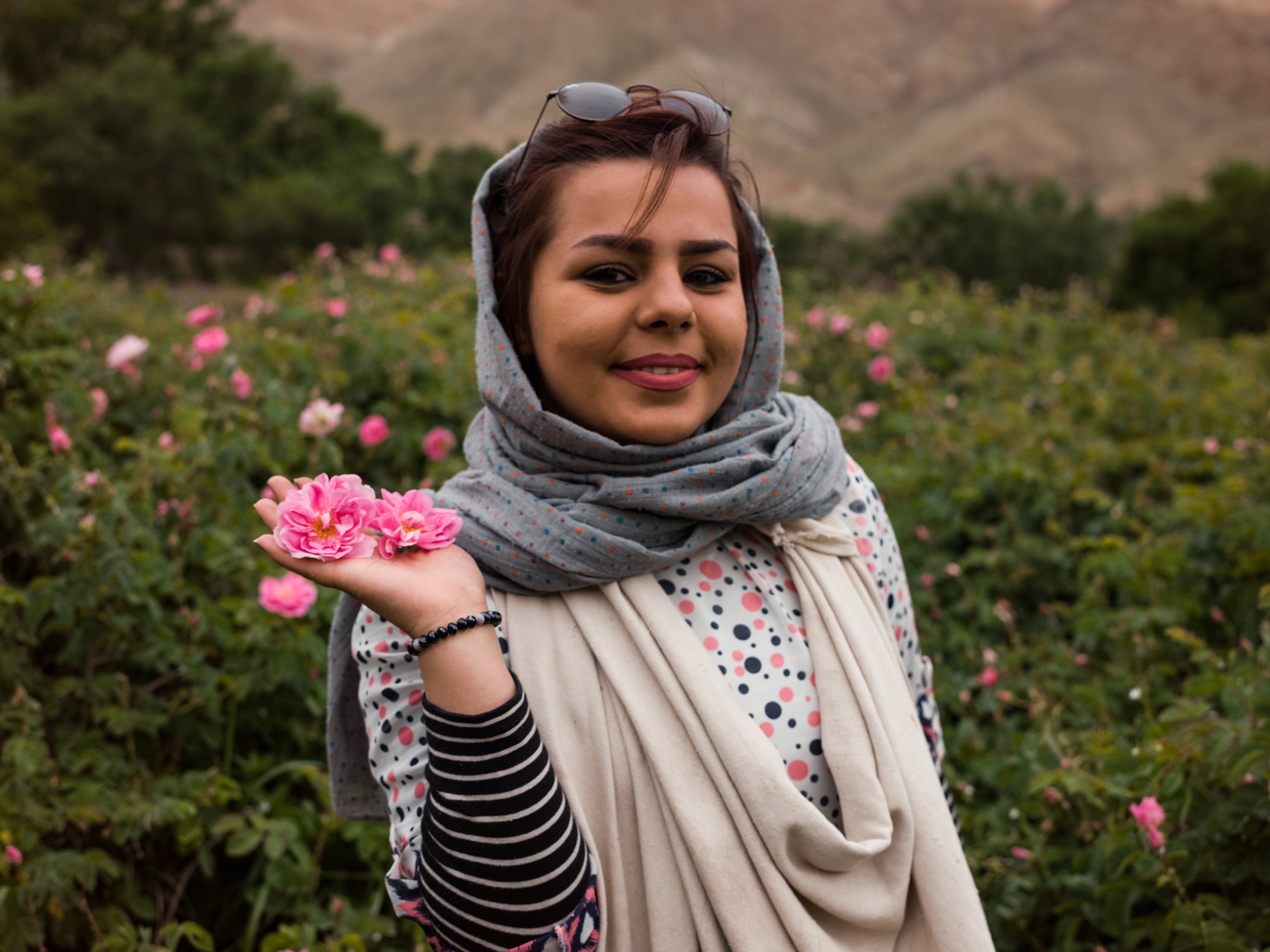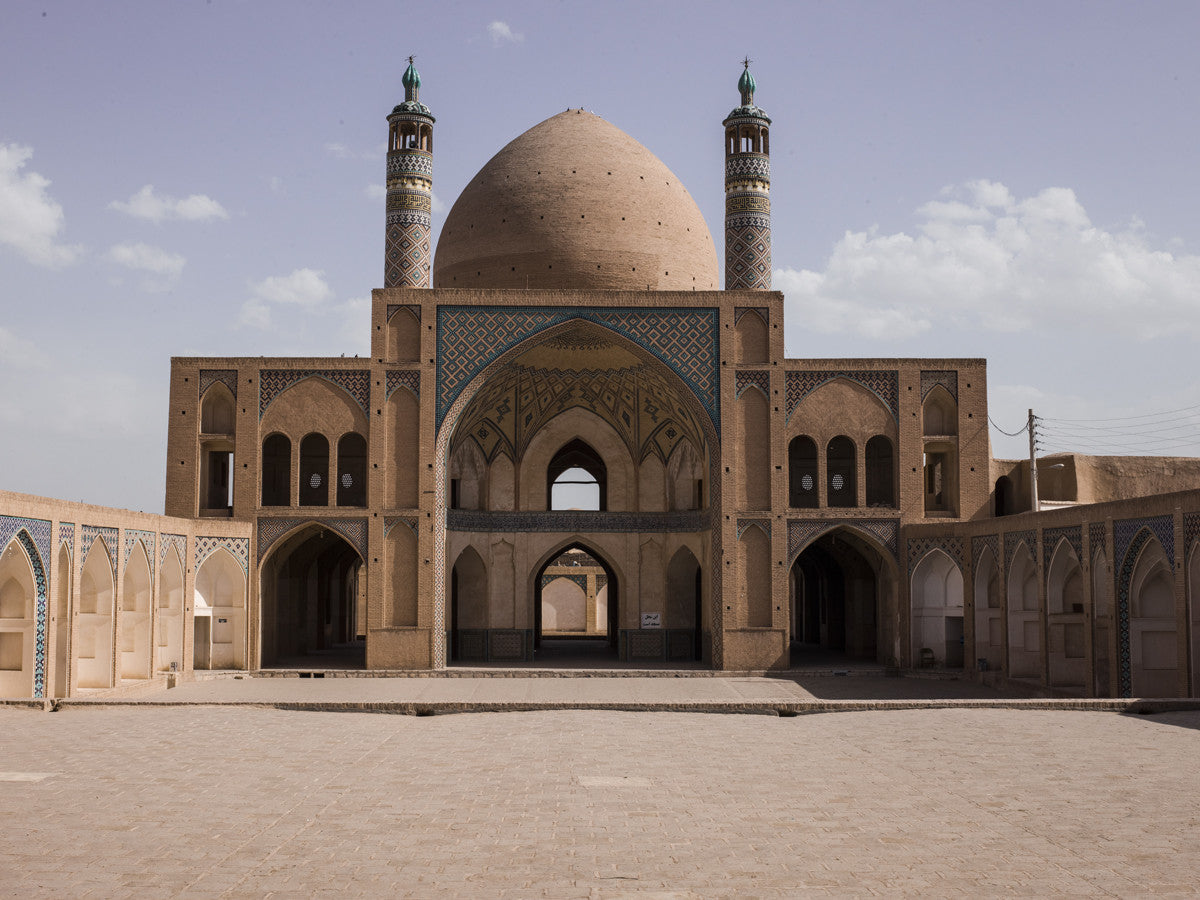HARVEST SEASON
A MOHAMMADI ROSE
KASHAN, IRAN
Scroll to explore
The Story
A CONVERSATION WITH MOSHEN GHAFFARI
ROSE PRODUCER IN QAMSAR, IRAN
Moshen Ghaffari was born into the tradition of Mohammadi rose water production in the Iranian village of Qamsar, near the town of Kashan. Today, he is both a rose water producer and a museum owner preserving the traditional methods of the local, unique, double-fired distillation process. Mohammadi, is the local name used for Rosa x damascena, the same rose varietal used in Turkey and Bulgaria. However, studies carried out by professors at the Tehran University claim that due to the natural and climatic conditions in the Qamsar fields, the flower has a higher concentration of the essence necessary to make the finest and most sought after rose water in the world.
 This work is done with
This work is done with This work is
Moshen Ghaffari, Rose Producer
done with passion
and enthusiasm.
S+O — WHAT IS THE CULTURAL SIGNIFICANCE OF ROSE WATER IN QAMSAR?
Ghaffari — The oldest people of Qamsar claim that it was the first city in Iran to harvest rose water. Rose water production has been a part of the culture for at least seven hundred years. Anyone in this country would know Qamsar as the city of fragrance and rose water. Even in countries around the world the city's reputation is widely known and respected. The Holy Ka'aba in Mecca, which is the most sacred mosque for the Islamic religion, is washed twice a year during the Haj season and Ramadan with the rose water of Qamsar. In general, the village is synonymous with the Mohammadi rose flower.

S+O — WHAT IS YOUR ANCESTRAL LINK TO THIS PROFESSION?
Ghaffari — This was my father's profession. He is now ninety years old. I started pursuing this profession when I was sixteen. I am now sixty-five and the roses have been a part of my life all of these years.
S+O — HOW ARE THE ROSES HARVESTED?
Ghaffari — Roses are a flower crop that has a volatile fragrance. In the direct sunlight, the breeze will allow its fragrance to escape by the minute. Therefore we must pick the flowers in the morning. The roses will be transferred to the processing facility where they are distilled to make both the precious oil and the water. The process, from harvest to distillation, must happen within twenty-four hours of the picking, or the quality is inferior.
S+O — HOW DOES IRAN'S APPROACH TO DISTILLATION DIFFER FROM OTHER PLACES IN THE WORLD?
Ghaffari — In terms of quality, it is superior here. We call the method golabe do atishe, or double-fired rose water. We toss the flowers, and pour rose water on top of the petals instead of pure water which is used in other places. So our rose water is essentially a rose water that is heated twice. This is what allows for the potency and high quality of the product. In terms of scent and quality, this rose water is the best in the world.


S+O — HOW IS ROSE WATER TRADITIONALLY USED HERE?
Ghaffari —There are a wide variety of uses. It is used for perfume, as well as health tonics, and beauty elixirs. But it is used traditionally in cooking here. This is what comes as a surprise to some. When you smell pure rose water, the scent should be like the smell of the flower itself when it has just been picked. And when you use it to cook, the dish will carry the fragrance of the flowers.
S+O — WHAT ARE THE BENEFITS TO KEEPING THIS TRADITION ALIVE?
Ghaffari — There are economical benefits linked to this tradition. Our product is high in demand and makes the living out of it successful, but it also makes sense from an environmental perspective. We are facing a water shortage during this season, and roses are a good choice because they require little water and really prosper in our climate.
For both the harvesters and the rose water producers, this work is done with passion and enthusiasm. People count the moments down to the flower season. And guests come, and the flower season creates a rare sense of festivity, warmth, and joy in our region.


People count the
moments down to
flower season.
CREDITS
Photography by Clement Jolin
Special Acknowledgements - Hamid Babaei, Nasser Salari, Hadi Poursadeghian, Shiva Rasaneh Media Agency
The Objects
Exclusive Edition 007 PERSIAN ROSE WATER
The rose water from the Iranian village of Qamsar is double-fired in a distillation process known locally as golabe do atishe. It is known for its potency and considered the finest rose water in the world. So fine in fact, that the holiest Islamic site in Mecca, The Ka'aba, is washed twice a year exclusively in the rose water.
The Destination
KASHAN, IRAN
Qamsar is a small village in the Isfahan Province of central Iran. As the village is small, the most suitable accommodation and dining options can be found in the nearby town of Kashan. Kashan is an ancient desert oasis town with a rich history of carpet weaving and other arts presented within a lively main bazaar in a city center full of well preserved, stunning examples of Persian architecture. American, British and Australian tourists require a travel guide to visit, but the sights, sounds and, during rose harvest season, the scents are sure not to disappoint.



